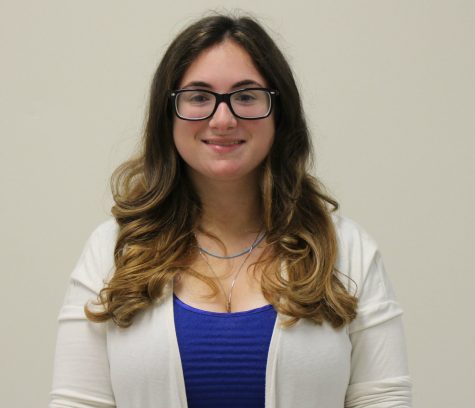The Holocaust told by a survivor
“Life was miserable. Everyday someone died,” said Barney Sidler, Holocaust Survivor, during his speech to AP Euro students on June 2. For two periods, Sidler talked about his life during during WWII, how he survived in concentration camps, and how his life has been ever since.
“At the age of six, my life changed. After being in first grade for a few months, I was told that I couldn’t attend classes because I was Jewish,” Sidler said. “In the camp, I was assigned kitchen duty, sorting potatoes. I would wear two pairs of pants so I could sneak some potatoes so my mother could cook them and put them in our food. If I would have been caught, I would have been beaten or put into solitary confinement.”
The only way Sidler could describe life in the camps was “pure hell.”
“In January 1945, we were transported again. There were 100 people on one car. We traveled for more than six days with no food or water. People would drink their own urine to satisfy their thirst,” Sidler said. “I saw starving prisoners cut up dead people to eat their flesh because there was nothing to eat.”
When Sidler was liberated, he was 12 years old. He was one of the youngest people to be liberated.
“My picture was on Chicago newspapers. That picture is currently in the national holocaust museum in Washington DC,” Sidler said.
He credits his survival to determination, luck, and the German doctor that took a liking to him while in the camps.
“I befriended a German doctor who was in the camps since 1937. He was a political prisoner. He took a liking to me because I reminded him of his son,” Sidler said. “He saved my life by hiding me in a laundry basket from a German Gestapo.”
While telling his story, Sidler used humor and a good attitude to make sure the students left with a positive attitude.
“His story was really heartbreaking. It made me realize that I need to cherish everything that I have in life,” Samhita Tamanna, sophomore, said. “The best quality that he has as a person is that he always looks at the positive things in life, so he was making jokes while talking about the Holocaust. It lightened up the mood.”
Sidler ended his speech with a Question and Answer session, which was followed by all the students lining up and hugging him individually. The overall message, through all the heartbreak and gore, is very positive.
“My formal education is one year of high school, and look how much I accomplished,” Sidler said. “An electrician, my own insurance company, speaking all over the world. You can accomplish anything you want to. You just need to believe and work towards it.”

This is Danna's (pronounced Donna, not Dana) third year on staff and fourth year involved in the journalism program. She's on the Varsity Tennis team...
